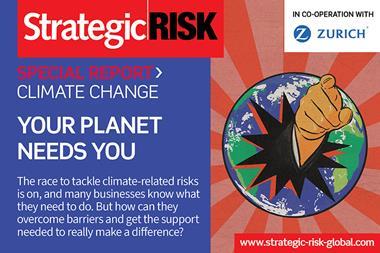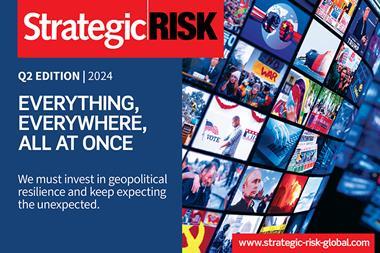A strong emphasis on data and collaboration are essential to achieving operational resilience
In the financial services sector, the need for more effective operational risk management has never been greater.
Due to fragmentation, an absence of industry-standard terminology and business-wide oversight of the operational risk environment, leaders are unable to make strategic decisions that are objective, fact-based and timely.
Businesses must be agile, but with so much data and so little consensus across the organisation, this is increasingly difficult.
By leveraging collective data, both internally and from across their sector, and applying advanced analytics underpinned by a common language, organisations can harness intelligence to drive strategic decisions.
Collaboration can also significantly improve the ability to anticipate and respond to emerging risks on the horizon.
Breaking down silos, engaging with peers and effectively leveraging data is the key to building a dynamic and robust risk and control environment that enables operational resilience.
Preparing for the next shock
The Covid-19 crisis taught us that industries can be exceptionally nimble when needed, however a sudden change can shift the risk balance and require significant recalibration.
For example, in the financial services industry, higher levels of remote working over sustained periods has amplified aspects of risk relating to conduct, e-comms surveillance, technology and reliance on third-party providers.
With layers of in-person oversight removed, the risk of employees engaging in illicit behaviour or inappropriate conduct has increased, which has brought senior manager accountability sharply into focus.
As we continue to navigate the new hybrid model of working, boards and senior managers are dedicating resources to fostering risk culture and establishing trust, to protect their operational resilience – and in turn themselves.
The pandemic has been one of the most significant risk events in modern memory. Also looming large on the horizon is climate risk, which will impact firms of all types and sizes, across all sectors.
While climate risk is high on the board agenda at most firms, amid expectations of tough requirements and sanctions, clarity is lacking and therefore levels of preparedness to manage climate risk remain low.
There is a great deal of uncertainty and as yet no consensus on how firms will meet the incoming disclosure requirements from the TCFD and others. As a result, data-driven collaboration and peer-to-peer benchmarking is rising in importance.
The greater your ability to quantify your risks, and to benchmark your control environment against your peers, the more agile and responsive you will be in the face of new risks, as they emerge.
Whatever your sector, climate change will inevitably impact you and how you do business, so it’s in every firm’s interests to come together and work collectively to figure out what’s appropriate.
Peer analysis grants common intelligence and gradually enables the creation of industry-accepted controls that can be built into existing risk frameworks, without reinventing the wheel.
With each recalibration shared, the bar is raised a little higher and collective resilience grows. Once this kind of agility is established, boards will be far better equipped to fulfil their obligations in relation to climate risk management.
Paul Ford is founder and CEO of Acin




















No comments yet